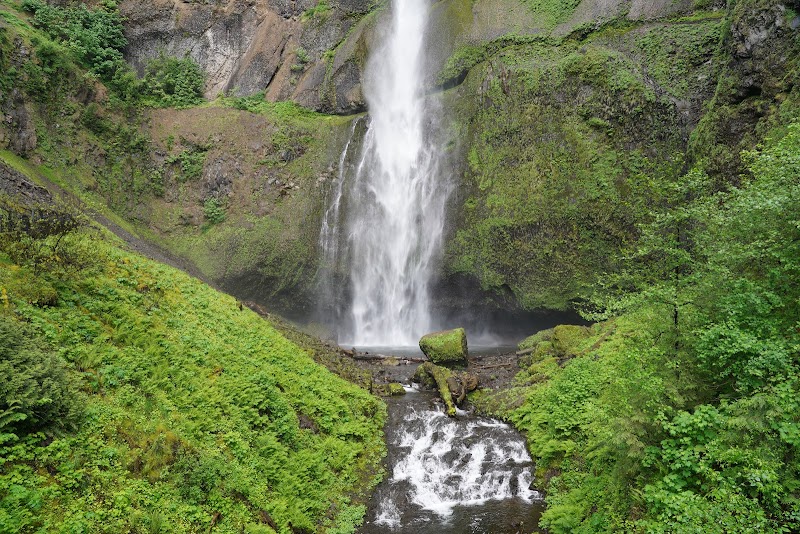
Experience the magic of Detroit Lakes Recreation Area by day and night. From serene lakeside hikes to immersive campfire storytelling and ranger programs, this Oregon locale offers both natural beauty and educational adventure under the stars.
Arrive Early for Campsite and Program Spots
Popular ranger programs fill quickly. Plan to arrive in the mid-afternoon to reserve campsites and secure a good spot around the evening campfire.
Layer Up for Weather Changes
Temperatures can swing significantly from day to night. Wear moisture-wicking layers and pack a warm jacket for evening programs.
Bring Water & Stay Hydrated
Day hiking and nighttime activities in the area require staying hydrated to maintain energy and comfort. Carry at least two liters of water per person.
Wear Sturdy Footwear
Trails feature uneven terrain with roots and rocks. Supportive shoes or boots will make hiking more comfortable and reduce risk of injury.
Campfire Storytelling & Ranger Programs at Detroit Lakes Recreation Area: Adventure After Sundown
When the daylight fades behind Oregon’s Cascade foothills, Detroit Lakes Recreation Area shifts gears from a daytime playground into a hub of storytelling and ranger-led discovery. Here, campfire storytelling isn’t just entertainment—it’s a bridge to the land’s past, weaving local history and natural lore under the vast night sky.
Set beside the gently lapping shorelines of Detroit Lake, ranger programs run most warm-season evenings, inviting visitors to gather around crackling fires. Expect a lively mix of Oregon’s forest tales, wildlife stories, and the rugged challenges early settlers faced. The air cools and settles as embers glow, while the forest beyond seems to listen, its pine boughs swaying like attentive listeners.
The recreation area itself offers more than just after-dark programs. During the day, you can hike trails ranging from easy 1-mile loops to moderate 5-mile treks. Many paths meander through fir and cedar groves where sun filters in patches, or climb to vantage points with sweeping lake views that dare your gaze to take it all in. Elevation gains are modest—usually under 500 feet—making these hikes accessible to most visitors, but still requiring steady footwear due to roots and rocky sections.
If you plan your visit around the ranger programs, arrive early to secure campsites or day spots by the lake. Hydration is essential: the high desert sun sharpens its edge by midday, and evenings grow brisk when the sun drops. Layered clothing works best here—shirts for sun protection, light jackets for night chill.
Once the campfire sparks, allow the stories to ground you in this rugged landscape, fiercely itself in its quiet dignity. Rangers often share tips on nocturnal wildlife, the delicate balance of fire use in Oregon’s forests, and the area's cultural ties to Native American tribes and pioneer settlers.
For adventurers looking to extend the experience, nearby trails offer sunrise hikes that catch the first light catching the lake’s surface like molten glass. Remember, these woods and waters are alive and aware. Respect the environment by staying on marked paths, packing out all trash, and keeping campfires contained.
Whether you're here to hike, camp, or gather under the stars, Detroit Lakes Recreation Area offers a rare evening invitation to connect with nature and story alike. The forest and lake don’t just wait for dawn—they thrive in the depth of night, daring you to listen closer.
Nearby Trips
All Adventures
Boat Charters
Water Activities
Adventures near Detroit, Oregon
Discover the unique and memorable adventures that make Detroit, Oregon special.
Frequently Asked Questions
Are the ranger programs appropriate for children?
Yes, most ranger-led campfire storytelling events are family-friendly, designed to engage all ages with approachable storytelling and interactive elements.
Can I bring my own firewood for the campfires?
Detroit Lakes Recreation Area has specific rules about firewood due to pest control. It’s best to use firewood sold or provided on-site to prevent spreading invasive species.
What wildlife might I see during the ranger programs?
Visitors often hear owls call during evening sessions; deer and raccoons are active nearby. Rangers may highlight tracks or signs of local animals like black bears or bobcats.
Is there a fee to attend campfire storytelling and ranger programs?
There is no additional fee beyond the recreation area’s day use or camping permit to attend ranger programs and storytelling around the campfire.
Are pets allowed during the ranger programs?
Pets are allowed in the recreation area but must be leashed. Be mindful of noise and wildlife disturbance during storytelling nights.
What is a lesser-known viewpoint worth visiting nearby?
Try the Little Deer Point Trail—a short detour offering a quiet, elevated view of the lake and surrounding forest, perfect for catching early morning light or sunset.
Recommended Gear
Lightweight Hiking Boots
Protect your feet on uneven, rocky trails for safer, more comfortable hikes.
Water Bottle or Hydration Pack
Vital for staying hydrated during active outdoor days and evening programs.
Warm Fleece or Insulating Layer
Bridges the temperature gap between warm days and cool evenings by the fire.
Headlamp or Flashlight
Essential for safe navigation after dark when attending campfire storytelling.
Local Insights
Hidden Gems
- "Little Deer Point Trail for peaceful lake views"
- "Evening silhouette views from the dam overlook"
- "Isolated beaches accessible by boat or longer hikes"
Wildlife
- "Great Horned Owls calling at dusk"
- "Black-tail deer grazing near campsites"
- "Pacific tree frogs chorusing in spring evenings"
History
"The area was historically used by Native American tribes including the Molalla people and later by settlers who harnessed the lake’s resources. Ranger storytelling reflects these indigenous and pioneer perspectives."
